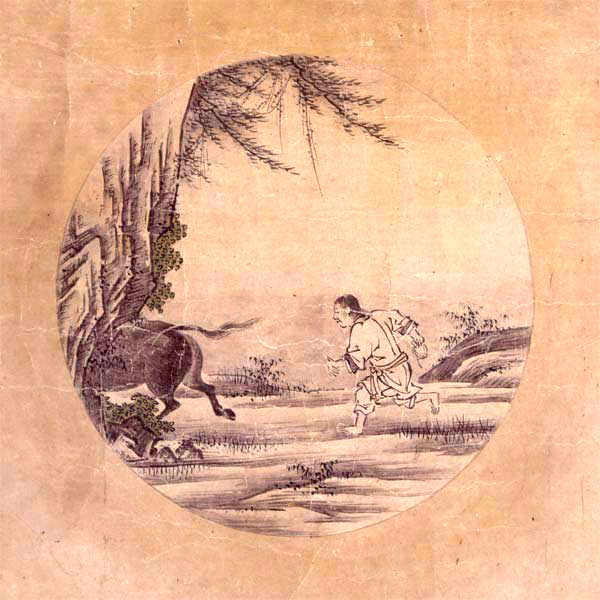 |
||||||||||||||
|
|
||||||||||||||
 |
||||
|
Zen (jap.) - Chan (chin.) - Dhyana (sanskr.)
After experience had taught me the hollowness and futility of everything that is ordinarily encountered in daily life, and I realized that all the things which were the source and object of my anxiety held nothing of good or evil in themselves save insofar as the mind was influenced by them, I resolved at length to inquire whether there existed a true good, one which was capable of communicating itself and could alone affect the mind to the exclusion of all else, whether, in fact, there was something whose discovery and acquisition would afford me a continuous and supreme joy to all eternity.
Baruch de Spinoza, Treatise on the Emendation of the Intellect
To experience means to know facts just as they are, to know in accordance with facts by completely relinquishing one’s own fabrications. What we usually refer to as experience is adulterated with some sort of thought, so by pure I am referring to the state of experience just as it is without the least addition of deliberate discrimination. The moment of seeing a color or hearing a sound, for example, is prior not only to the thought that the color or the sound is the activity of an external object or that one is sensing it, but also to the judgement of what the color or the sound might be. In this regard, pure experience is identical with direct experience. When one directly experiences one’s own state of consciousness, there is not yet a subject or an object, and knowing and its object are completely unified.
Kitaro Nishida, An Inquiry into the Good
If he will but listen intently to everyday sounds, he will come to realization and at that instant see the very Source.
Kuo-an Shih-yuan, Comment to the third Oxherding Picture
What is it that hears these sounds?
Look! Look! Who’s hearing and seeing right now?
Bassui Tokusho, Dharma talk
It’s not that ”I” hears the birds sing, it’s just hearing the birds.
It is the false ”I” that interrupts the wonder with the con-stant desire to think about ”I”. And all the while the wonder is occurring: the birds sing, the cars go by ...
Charlotte Joko Beck, Everyday Zen
If by eternity is understood not eternal temporal duration, but timelessness, then he lives eternally who lives in the present.
Ludwig Wittgenstein, 6.4311
A nightingale warbles on a twig, the sun shines on undula-ting willows.
Kuo-an Shih-yuan, Verse to the third Oxherding Picture
|
||||
|
Die Seiten und ihre Inhalte sind urheberrechtlich geschützt! Copyright © Roland Salz 2000 - 2025 Version 18.1.2025 |
||||
 |
|||
|
Bild: License |
|||